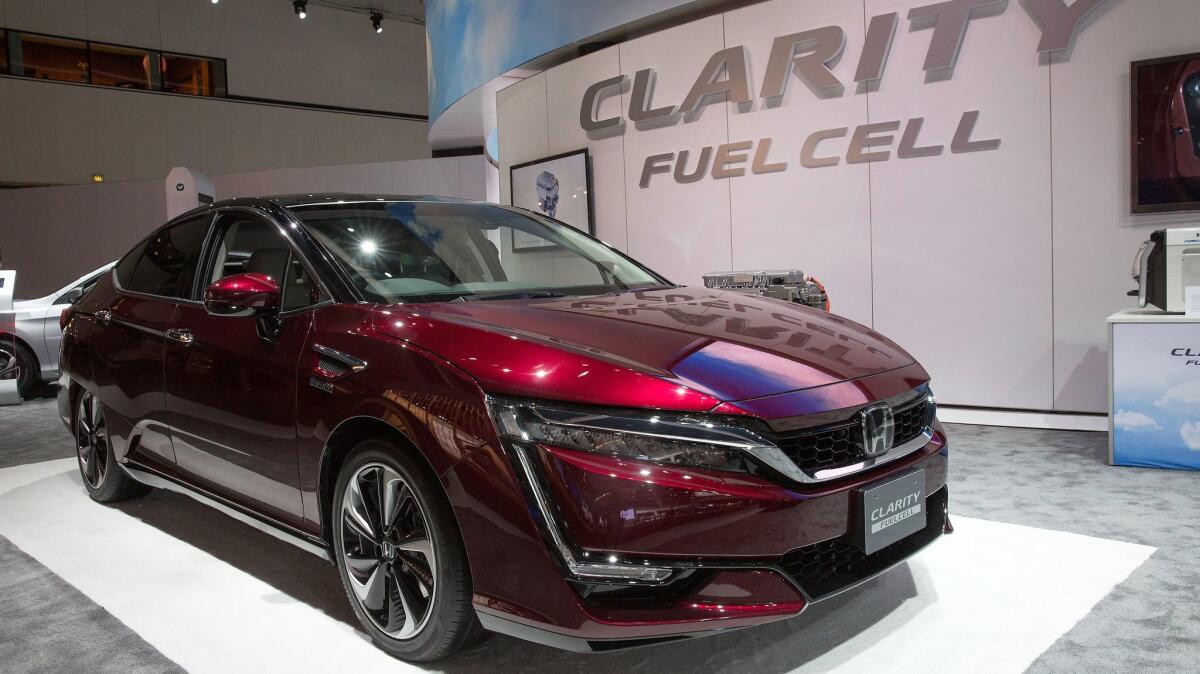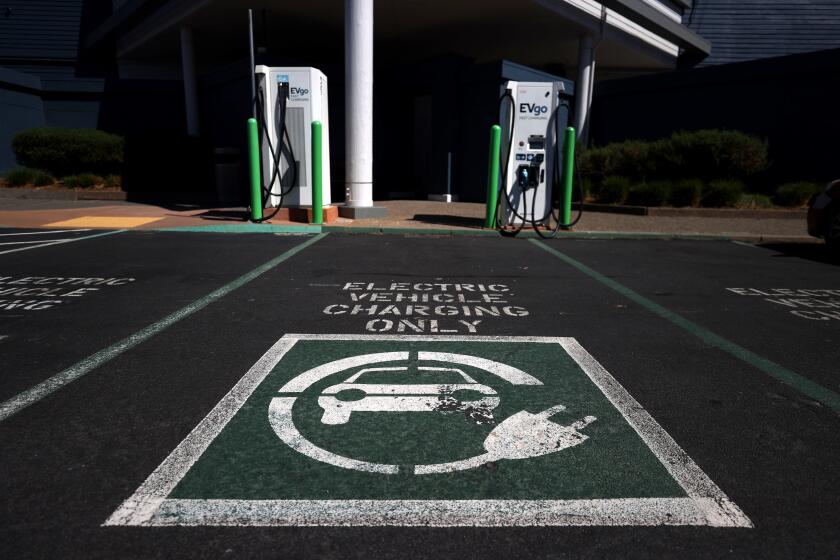GM and Honda team up on hydrogen fuel cell vehicles

Auto giants General Motors and Honda have announced a joint venture to build hydrogen fuel cell systems to power electric automobiles.
The partnership will lead to mass production of fuel cell systems, starting in 2020 at a factory in Michigan, the two companies said. They said that they will make an initial shared investment of $85 million in the venture and that the new Michigan facility will create 100 jobs.
Both companies have extensive experience with hydrogen fuel cells. GM holds more patents on the technology than any other company. Honda was early to market with its hydrogen fuel cell Clarity passenger car, available for lease in the U.S. and Japan.
Hydrogen fuel cell technology — which uses compressed hydrogen to power an electric motor — has long been seen as a viable alternative to using gasoline. The hydrogen that powers vehicles outfitted with the system can be made from renewable energy sources. Vehicles equipped with the systems produce only water vapor as emissions.
But consumers have been slow to embrace hydrogen fuel cell cars, due in part to the high cost of the vehicles and in part to the limited number of fueling stations.
A current Toyota Mirai costs $57,000 to buy and $349 a month to lease, for example.
And, although a hydrogen fuel cell car can be refueled as quickly as a gasoline-powered car — much more quickly than any battery electric vehicle — there are only a handful of fueling stations in Southern California, which has the densest network of such stations in the country.
Several car companies have put hydrogen fuel cell vehicles on the road. In addition to Toyota’s Mirai, Hyundai leases a hydrogen fuel cell Tucson, and Mercedes-Benz has in the past equipped some sedans with the hydrogen fuel cell system.
Analysts were guardedly enthusiastic about the nascent technology and the GM-Honda announcement.
“It’s understandable that GM and Honda continue to push this technology forward,” said Karl Brauer, executive publisher for Autotrader and Kelley Blue Book. “But the fuel cell vehicles available today are barely past prototype status, which means they are extremely expensive. So there’s more work to be done.”




